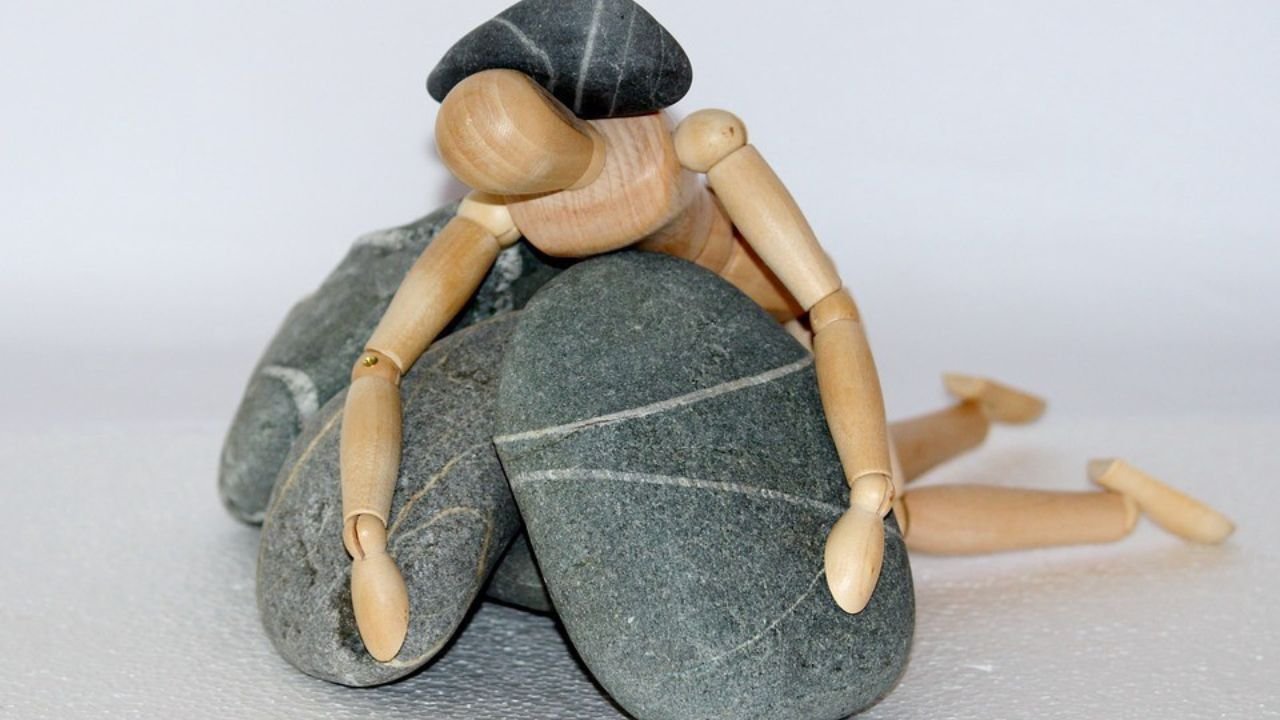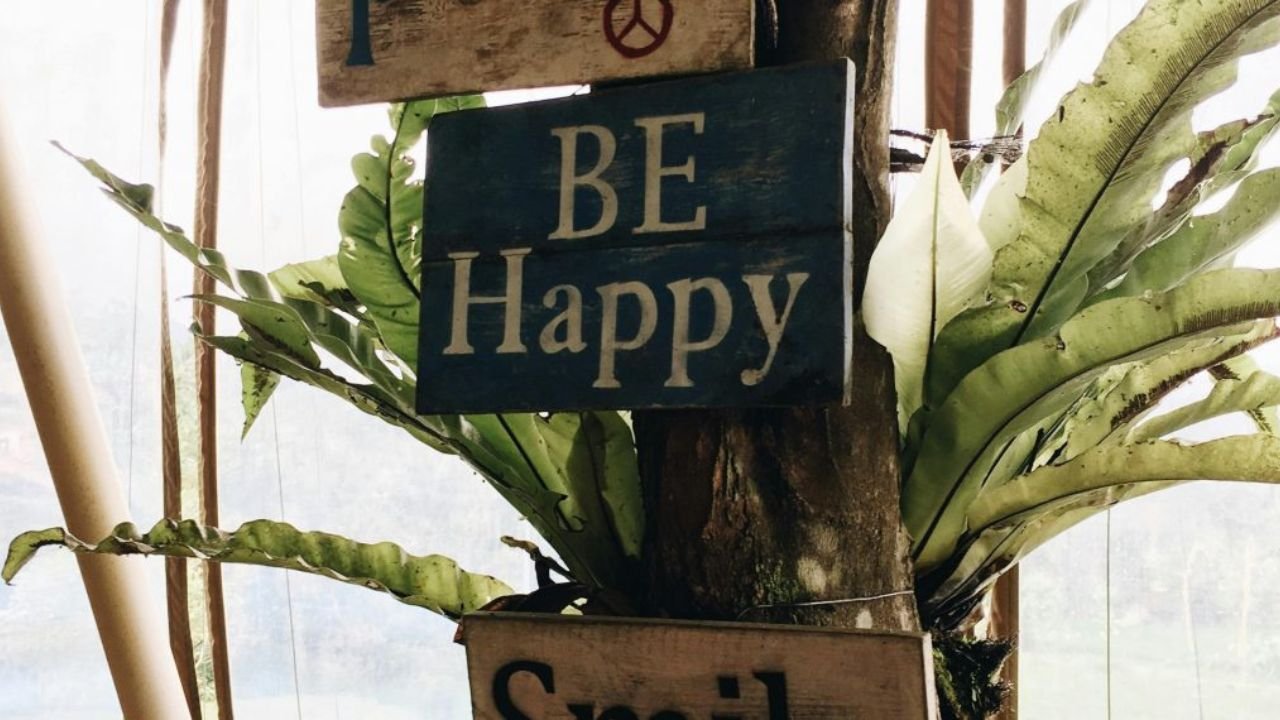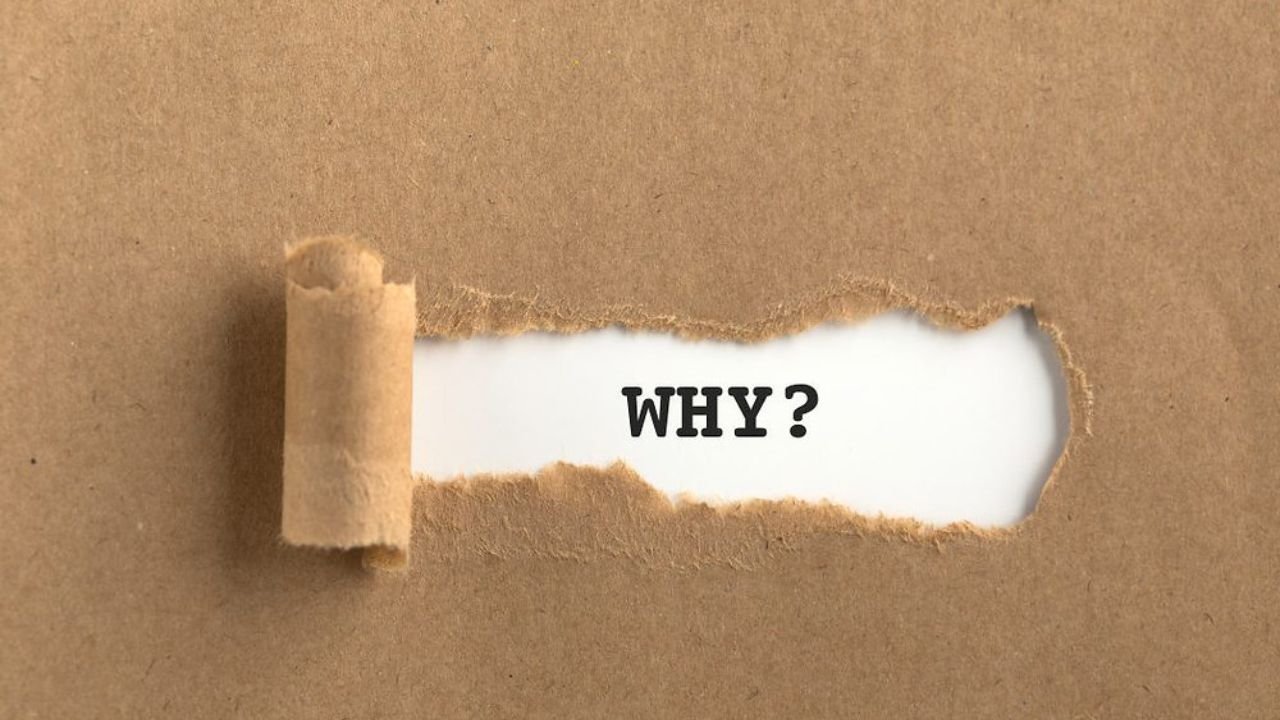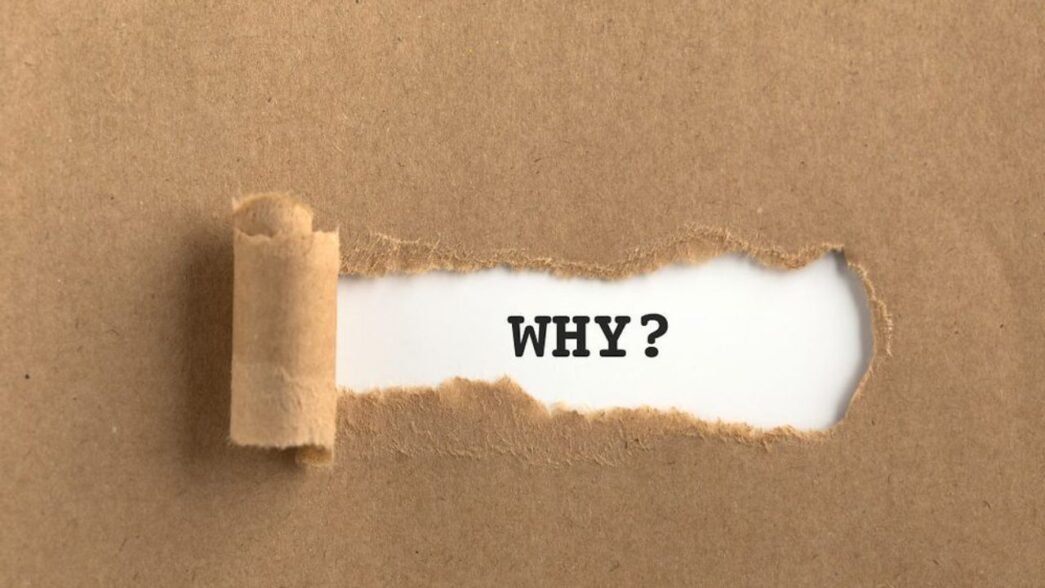“Why do bad things happen to good people?” : Have you ever pondered the timeless question This enigma transcends cultures and beliefs, resonating across various traditions and philosophies. The prevalence of this query underscores its complexity and emotional weight. In our exploration, we aim to unravel distinct perspectives and offer a holistic comprehension of this enduring mystery.
- 01. The Philosophical Perspective
- 02. Religious Interpretations
- 03. Psychological Explanations
- 04. Sociocultural Factors and Suffering: Understanding the Impact
- 05. Personal Stories and Anecdotes
- 06. Frequently Asked Questions
- 07. Top 5 Amazon Products to Enhance Your Understanding of Suffering and Resilience
- 07. Conclusion - Why Do Bad Things Happen to Good People
01. The Philosophical Perspective
Have you ever pondered the randomness of life and how it intersects with the existence of good people facing bad circumstances? Philosophers throughout history have delved into this intricate topic, offering insights that navigate the maze of uncertainty and distress. Let’s explore two fundamental philosophical perspectives that shed light on the enigma of why bad things happen to good people.
01. Existentialism and Randomness
Existentialism, a philosophical tradition that emphasizes individual existence, freedom, and choice, looks at the concept of randomness through a unique lens. According to existentialist views, life is inherently unpredictable and devoid of predetermined meaning. Embracing life’s unpredictability can be a source of emotional liberation, as it invites individuals to confront the sheer randomness of experiences and the absence of a preordained path. By acknowledging the capricious nature of existence, individuals can find solace in the freedom to create their own meaning amidst the chaos. Existentialism challenges us to embrace the uncertainties of life and find purpose in the face of adversity.
For more on how existentialism relates to the meaning of life, you can explore insights from experts on Existential Therapy: Finding the Light in the Darkness and contemplate the significance of embracing existentialism in navigating life’s uncertainties.
02. Stoicism and Control
Stoicism, a practical philosophy that emphasizes virtue, reason, and resilience, offers a distinct approach to coping with adversity. Central to Stoic teachings is the concept of distinguishing between what is within our control and what is beyond our control. By focusing on developing inner strength and virtues, Stoicism empowers individuals to navigate challenging circumstances with grace and equanimity. The Stoic perspective on adversity underscores the importance of accepting the uncontrollable nature of external events and cultivating resilience through virtue and wisdom. In the face of hardship, Stoicism encourages individuals to maintain composure, adaptability, and a steadfast commitment to personal growth.
To delve deeper into how Stoicism can help overcome adversity, explore insightful reflections on How Can Stoicism Help Overcome Adversity? and discover the practical strategies Stoics employ to thrive in the face of challenges.
02. Religious Interpretations
Why do bad things happen to good people? This age-old question has captivated the minds of individuals seeking solace and understanding amid turmoil and adversity. Various religions offer unique perspectives on this perplexing issue, shedding light on the intricacies of suffering and its place in the human experience. Let’s explore how different religious traditions interpret the occurrence of hardships in the lives of virtuous individuals.
01. Christianity
In Christianity, the concept of suffering is often viewed through the lens of a divine test. According to Christian belief, life on Earth is a journey filled with challenges and trials meant to refine and strengthen one’s faith. The notion that bad things happen to good people serves as a testament to the moral and spiritual growth that can arise from adversity. Christians find comfort in the belief that suffering, though painful, serves a higher purpose ordained by God to shape individuals into vessels of compassion, resilience, and unwavering faith.
For further insights into the Christian perspective on suffering, explore resources such as Five Truths About Christian Suffering and delve into the understanding of suffering as a tool for growth and spiritual maturation.
02. Buddhism
In Buddhism, suffering holds a central place in the philosophy of life. The concept of karma, the law of cause and effect, dictates that individuals experience suffering as a result of their past actions and intentions. The cycle of rebirth, known as samsara, perpetuates the continuity of suffering until one achieves enlightenment and breaks free from the cycle. Buddhists perceive the occurrence of hardships in the lives of good people as a reflection of their karmic debt and an opportunity to transcend earthly desires and attachments through mindful awareness and detachment.
To explore how Buddhism elucidates the relationship between suffering and karma, consider sources like Understanding Karma and The Buddhist Response to Suffering, which delve into the profound teachings on the nature of suffering and liberation in Buddhist thought.
03. Hinduism
Hinduism attributes the presence of suffering to the intricate web of karma and dharma, the cosmic law of moral duty and righteousness. According to Hindu philosophy, individuals endure hardships as a consequence of their past actions, both in this life and in previous incarnations. Suffering serves as a means of purifying the soul and balancing the scales of karma, leading individuals on a transformative journey of spiritual evolution. The concept of dharma, one’s sacred duty and ethical responsibility, provides a guiding light in overcoming adversity and embracing life’s challenges with equanimity and grace.
For deeper insights into how Hinduism elucidates the correlation between suffering and karma, explore texts like Hinduism: The Problem of Suffering to unravel the profound teachings on the nature of suffering and karma in Hindu spiritual traditions.

03. Psychological Explanations
Have you ever pondered the perplexing question of why bad things happen to good people from a psychological standpoint? Let’s delve into the fascinating realm of psychology to uncover insightful explanations that shed light on this enduring mystery.
01. Cognitive Biases
Cognitive biases, such as the just-world hypothesis, play a significant role in shaping our perception of fairness and suffering. The just-world hypothesis leads us to believe that the world operates in a fair and predictable manner, where good deeds are rewarded, and bad deeds are punished. This cognitive bias can cloud our understanding of the complexities of life, leading us to seek rational explanations for seemingly unjust events. Exploring how cognitive biases influence our views on adversity can provide valuable insights into why we perceive bad things happening to good individuals.
For further exploration on cognitive biases and their impact on our perception of fairness and suffering, you can refer to resources like Psychology Today’s article on Why Do Bad Things Happen to Good People? to deepen your understanding of these psychological phenomena.
02. Resilience and Growth
Amidst the turmoil of adversity, resilience shines as a beacon of hope and transformation. Psychological research has highlighted the profound connection between resilience and personal growth in the face of challenges. Adversity has the remarkable potential to catalyze personal development, fostering resilience, and inner strength. By embracing setbacks as opportunities for growth, individuals can navigate life’s uncertainties with grace and emerge stronger from the crucible of hardship.
To delve deeper into the interplay between resilience, adversity, and personal growth, explore perspectives from sources like Tiny Buddha’s insights on How Adversity Supports Personal Growth to gain a deeper understanding of the transformative power of challenges in shaping individuals’ paths to resilience and growth.
04. Sociocultural Factors and Suffering: Understanding the Impact
When exploring the profound question of why bad things happen to good people, it’s crucial to delve into the intricate web of sociocultural factors that shape our understanding and reactions to suffering and adversity. Society and culture play a pivotal role in influencing our perceptions, norms, and coping mechanisms when faced with life’s trials. Let’s navigate through the realms of cultural narratives and community support systems to unravel the profound impact of sociocultural influences on our experiences of hardship.
01. Cultural Narratives: Embracing Diversity in Coping Mechanisms
Cultural narratives offer a mosaic of unique perspectives and coping mechanisms for individuals navigating the complexities of adversity. Different cultures around the world possess rich traditions, stories, and beliefs that provide solace and guidance during challenging times. These narratives serve as guiding lights, illuminating paths of resilience and fortitude in the face of turmoil.
Exploring cultural narratives from diverse backgrounds, such as the tales of perseverance in Japanese culture or the communal bonds celebrated in African folklore, provides a tapestry of wisdom that enriches our understanding of suffering. By embracing the multiplicity of cultural narratives, we gain insights into the adaptive strategies and spiritual fortitude that underpin human resilience across societies.
For a deeper exploration of the influence of culture on mental health and well-being, you can dive into resources like the NCBI’s examination of the Influence of Culture and Society on Mental Health, which sheds light on the intricate interplay between societal norms and psychological well-being.
02. Community and Support Systems: Nurturing Collective Resilience
Community and support systems stand as pillars of strength during times of adversity, fostering collective resilience and solidarity in the face of hardship. The bonds forged within communities, whether familial, social, or cultural, serve as buffers against the storms of life, offering comfort, empathy, and practical assistance to those in need.
The role of community support systems extends beyond mere assistance; it embodies the essence of shared humanity and interconnectedness. In times of crisis, communities rally together, providing emotional sustenance and pragmatic aid to individuals grappling with tragedies and misfortune. The sense of belonging and mutual reliance within supportive networks fosters a sense of hope and solidarity that transcends individual suffering.
To explore the social ecology of childhood adversity and the impact of community support on resilience, delve into resources like The Social Ecology of Childhood and Early Life Adversity, which delves into the intricate connections between early experiences, societal influences, and resilience-building strategies.
By navigating the intricate tapestry of sociocultural influences on our understanding and response to suffering, we unveil the nuanced nuances that shape our perceptions and resilience in the face of life’s adversities. Embracing diverse narratives and communal support systems empowers us to navigate the complexities of hardship with grace and solidarity, forging paths of resilience and empathy in the shared journey of human experience.

05. Personal Stories and Anecdotes
Life is a journey filled with twists and turns, and amid the challenges, tales of triumph emerge as beacons of hope and inspiration. These stories of resilience and perseverance showcase the indomitable spirit of individuals who faced adversity with courage and emerged stronger on the other side. Let’s delve into the personal narratives that exemplify the power of the human spirit in overcoming great challenges.
01. Stories of Triumph
From Homelessness to Harvard: The Inspiring Journey of Liz Murray
Liz Murray’s story is a testament to the resilience of the human spirit. Growing up in poverty and homelessness, Liz faced insurmountable odds from a young age. Despite the hardships and adversities she encountered, Liz refused to let her circumstances define her future. Through sheer determination and unwavering grit, she defied the odds and charted a path to success.
Liz’s journey culminated in a remarkable achievement – acceptance into Harvard University. Her story of perseverance, dedication, and the relentless pursuit of education serves as a beacon of hope for individuals facing seemingly insurmountable challenges. Liz’s triumph over adversity is a reminder that with unwavering determination and a steadfast belief in oneself, even the most daunting obstacles can be overcome.
The Phoenix Rising: Rebirth from Addiction
Amid the depths of addiction, the story of rebirth and redemption shines brightly. Countless individuals have faced the harrowing grip of substance abuse and emerged on the other side, transformed and renewed. The journey from the darkness of addiction to the light of recovery is a testament to the power of resilience and the human capacity for change.
Through stories of individuals who have reclaimed their lives from the clutches of addiction, we witness the transformative power of hope, support, and personal growth. Each tale of triumph over addiction is a reminder that even in the darkest moments, redemption and recovery are possible, paving the way for a brighter, healthier future.
02. Lessons Learned
Resilience as a Beacon of Light
The stories of triumph underscore the unwavering power of resilience in the face of adversity. They teach us that setbacks are not the end but rather the beginning of a new chapter – a chapter filled with growth, strength, and renewed purpose. The lesson gleaned from these narratives is that resilience is not merely a trait but a guiding light that illuminates the path to transformation.
Embracing Adversity as a Catalyst for Growth
The tales of individuals who have conquered adversity with fortitude remind us that challenges are not obstacles to be feared but opportunities for growth and self-discovery. Each story is a testament to the profound impact of adversity in shaping character, instilling empathy, and fostering inner strength. The lessons learned from these narratives resonate with the essence of growth through adversity, reminding us that even in the face of uncertainty, resilience and growth await those who dare to embrace the journey.
Embark on a journey of self-discovery and resilience through the inspiring tales of triumph over adversity. These stories serve as poignant reminders of the indomitable spirit of the human experience, guiding us to navigate life’s challenges with courage, hope, and unwavering determination. As we unravel the narratives of triumph, let us glean insights that inspire us to face adversity with grace and emerge stronger, wiser, and more resilient than ever before.
[Explore more inspiring personal stories of triumph and resilience to discover the transformative power of perseverance and unwavering resolve.] (https://www.inspiringstories.com/)
By sharing and reflecting on personal narratives of triumph and resilience, we gain a deeper understanding of the human capacity for growth and transformation in the face of adversity. The stories of triumph not only inspire us but also teach invaluable lessons on resilience, perseverance, and the unwavering spirit that propels individuals toward success even in the darkest of times. Through these narratives, we come to appreciate the power of hope, determination, and community support in overcoming life’s challenges and emerging stronger on the other side.
Know More: Tips for Happiness, Better sleep
06. Frequently Asked Questions
Have you ever wondered why bad things seem to happen to good people? This age-old question has puzzled minds and stirred contemplation across generations. Let’s dive into some common inquiries and enlightening answers that offer insight into this enduring mystery.
Question 1: What Causes Bad Things to Happen to Good People?
Exploring the underlying reasons behind the occurrence of unfortunate events in the lives of virtuous individuals can lead us to a deeper understanding of the complexities of life and fate. Delve into discussions on the reasons behind bad events affecting good individuals to unravel the intricate web of causality that shapes our experiences.
Question 2: Is There a Universal Explanation for the Injustice of Good People Facing Hardships?
In the search for meaning amidst the chaos of life, individuals often seek solace in understanding the greater forces at play in the occurrence of suffering and adversity. Explore diverse perspectives on the universal explanations for good people enduring hardships to gain insights into the complex dynamics of human existence.
Question 3: How Do Concepts of Good and Bad Influence our Perception of Life’s Challenges?
The subjective nature of morality and virtue can shape our interpretation of events, leading to introspection on the dichotomy of good and bad in the context of life’s trials. Explore discussions on the influence of moral concepts on our perception of adversity to uncover the nuances of human judgment and resilience.
Question 4: Do Cultural Beliefs and Traditions Offer Perspectives on the Suffering of Good Individuals?
Across diverse cultures and belief systems, interpretations of suffering and injustice vary, reflecting unique narratives and philosophies that illuminate the human experience. Immerse yourself in the cultural interpretations of suffering and goodness to gain a deeper appreciation for the richness of human wisdom and resilience.
Question 5: How Can Personal Growth and Resilience Flourish Amidst Adversity for Good-hearted Individuals?
The journey of personal development and inner strength often unfolds amidst the crucible of challenges and setbacks, shaping individuals into resilient beings capable of facing life’s uncertainties with grace. Reflect on the transformative power of adversity in fostering growth and resilience to glean insights into the indomitable spirit of the human heart.
By delving into these intriguing questions and seeking nuanced answers, we embark on a journey of understanding and contemplation that sheds light on the profound mysteries of why bad things happen to good people. Join us in unraveling the enigma of fate and virtue, exploring diverse perspectives and timeless truths that illuminate the human experience.
Read More: Why Do Autistic People Like Trains? 7 Fascinating Reasons

07. Top 5 Amazon Products to Enhance Your Understanding of Suffering and Resilience
- “Man’s Search for Meaning” by Viktor E. Frankl
- This influential book by Holocaust survivor and psychologist Viktor Frankl delves into existentialism, suffering, and finding meaning in adversity. It aligns perfectly with the philosophical perspectives discussed in the article.
- Buy on Amazon
- “The Daily Stoic: 366 Meditations on Wisdom, Perseverance, and the Art of Living” by Ryan Holiday
- A compilation of Stoic wisdom that offers daily meditations. This book complements the Stoicism section and provides practical advice for developing resilience.
- Buy on Amazon
- “The Problem of Pain” by C.S. Lewis
- C.S. Lewis explores the question of why good people suffer from a Christian perspective, making it an excellent resource for those interested in religious interpretations of suffering.
- Buy on Amazon
- “The Art of Happiness” by Dalai Lama and Howard Cutler
- This book offers insights into how Buddhist principles can help individuals find peace and happiness amidst suffering. It aligns with the Buddhist perspective discussed in the article.
- Buy on Amazon
- “The Body Keeps the Score: Brain, Mind, and Body in the Healing of Trauma” by Bessel van der Kolk
- A must-read for understanding the psychological impact of trauma and the path to recovery, relevant to the psychological explanations of suffering and resilience in the article.
- Buy on Amazon
07. Conclusion – Why Do Bad Things Happen to Good People
Life’s intricate tapestry weaves a complex narrative of joys and sorrows, triumphs, and tribulations. The question of why bad things happen to good people echoes through the corridors of human contemplation, inviting us to explore the enigma of existence and resilience in the face of adversity.
From philosophical ponderings on existentialism and Stoicism to religious interpretations encompassing Christianity, Buddhism, and Hinduism, diverse perspectives offer glimpses into the mysteries of fate and virtue. Psychological insights illuminate the role of cognitive biases and resilience in navigating life’s uncertainties, while sociocultural influences unveil the collective resilience woven into the fabric of communities.
While there may not be a definitive answer to why bad things happen to good people, the journey of understanding and embracing diverse perspectives serves as a beacon of hope in the labyrinth of life’s challenges. Each narrative, each philosophy, and each personal story intersect to form a kaleidoscope of wisdom, guiding us towards meaning amidst the chaos.
As we reflect on the intricacies of fate and goodness, let us embrace the power of diverse narratives and collective resilience to navigate the storms of life with courage and empathy. In the symphony of human experience, the question remains, but our capacity to find solace and meaning in the face of adversity shines brightly, illuminating the path to resilience and growth.











